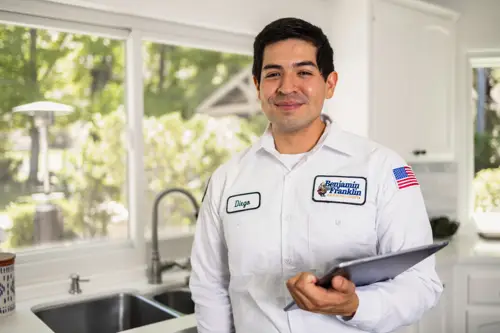 The water quality is different in many cities in Florida. Lakeland is one of them. According to data, the city has hard water. Hard water is water that contains many minerals. Whilst there is no threat to drinking hard water, there are some problems that can occur.
The water quality is different in many cities in Florida. Lakeland is one of them. According to data, the city has hard water. Hard water is water that contains many minerals. Whilst there is no threat to drinking hard water, there are some problems that can occur.
What Is Hard Water?
Minerals such as calcium and magnesium are prevalent in hard water. Lakeland has a lot of homes with hard water because the water contains these minerals as it percolates through rocks and soils underground.
What Is Soft Water?
Soft water contains fewer minerals, especially magnesium and calcium. This lower concentration of minerals can result from water-softening systems or from the natural conditions in the area, which feature poorer mineral-rich soil.
Factors in Florida That Affect Water Hardness
The geology of Florida plays a big part in water hardness in the state. The sedimentary rock limestone, known for being dense in calcium carbonate (a salt that forms from limestone and other seashells), comprises a massive bed on which the state rests. The porous rock absorbs magnesium and calcium and causes water to become considerably harder as it travels through it. The aforementioned geological features impact several regions of Florida, including the central part of the state known as Lakeland. With 180 PPM (or 11 GPG), Lakeland’s water is very high and one level from being deemed ‘Very Hard’. The Floridan Aquifer — a limestone formation that contributes to high mineral content — supplies the city with water.
Year-to-year variations in rainfall soften water slightly, as heavy rains dilute the mineral concentration. Dry periods increase the hardness by increasing the proportion of mineral salts. One quirk of Florida groundwater is that, since it is in almost constant contact with the minerals below the surface, and is likely to be filtered through them to some degree, it is generally two or three times harder than surface water.
Pros and Cons of Hard Water
Hard water has some good qualities, such as having healthy amounts of minerals like magnesium and calcium. These minerals are essential for healthy bones and other biological functions. Drinking hard water is one way to get some of the minerals every day. In fact, hard water has a certain allure for some people who find the mineral content to be more tasty.
However, using hard water does have its drawbacks. The most common problem is a buildup of limescale. Over time, this can lead to some pipes getting clogged and the water heater not working as effectively anymore, possibly leading to its breakdown. In addition, your clothes may feel more rigid and unclean, due to limitations with the detergent and soap usage. Since water with a higher degree of hardness decreases soap’s capabilities, limescale makes the glasses and plates that you use look unattractive and leaves white rings. Homeowners end up spending thousands of dollars instead of just a few bucks to get rid of hard water in their faucets and have to replace their appliances instead of fixing them.
How Does Hard Water Affect Tourism in Lakeland?
Hard water gradually lowers the quality of the tourist experience for which Lakeland is famous for and greatly depends on for the city’s economy. All of the problems associated with hard water on a day-to-day business basis are well-known. As an example, hotel linens, glasses and fixtures may not be as clean when the water is hard. Hotel guests may find that their towels and linens are too stiff.
These problems may not stop people from visiting, but they can lower the standard of service that tourists get. Many hotels have incorporated water-softening systems as a means of optimizing client satisfaction and mitigating the effects of hardness.
How to Fix Hard Water Problems
Luckily, Lakeland has lots of options to treat hard water. The most efficient method is to install a water-softening appliance that removes calcium and magnesium. An ion-exchange system, for example, removes limescale by replacing hard minerals in water.
Other options include water conditioners and scale inhibitors. These devices don’t eliminate minerals from water but prevent them from clinging to surfaces. This decreases hard water’s damage to appliances. Maintenance of water heaters, faucets, and other plumbing fixtures can also reduce hard water damage.
Getting rid of hard water in your home is easy when you have a reliable plumber to turn to. Contact Benjamin Franklin Plumbing now to schedule hard water testing for your home.